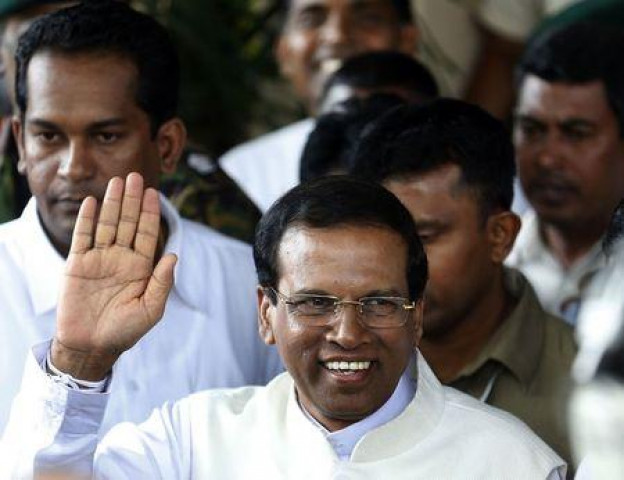The Sri Lankan revolution
New Sri Lankan president has pledged to end the intimidation of the media on all of its platforms

Sri Lanka's newly elected president Mithripala Sirisena waves at media as he leaves the election commission in Colombo January 9, 2015. PHOTO: REUTERS
By the weekend, it was clear that there was a new broom at work. The new president pledged to end the blocking of websites as well as the intimidation of the media on all of its platforms. Government-owned newspapers quickly relegated Mr Rajapaksa to a postage-stamp sized image and changed tack. They are said to now be free to report and criticise as is usual in a democratic society. Change may not come easily to all. Some regional analysts are saying that this is a ‘last chance’ for democracy in Sri Lanka, but it is more helpfully seen as the best, rather than the last, chance. The Sri Lankan economy may seem in relatively good shape, driven by resurgent tourism and the construction industry, but the trickle-down effect has not happened for the poorest. The Rajapaksa government adamantly refused to reconcile with the Tamils, costing him millions of votes and his poor relations with the significant Muslim population cost him more. There is now much bridge-building and fence-mending to do if the promises of the campaign trail are to be turned into hard reality. The honeymoon period is likely to be brief, with an electorate that wants change and fast. We wish Sri Lanka well, and congratulate it on its democratic revolution.
Published in The Express Tribune, January 13th, 2015.
Like Opinion & Editorial on Facebook, follow @ETOpEd on Twitter to receive all updates on all our daily pieces.














COMMENTS
Comments are moderated and generally will be posted if they are on-topic and not abusive.
For more information, please see our Comments FAQ